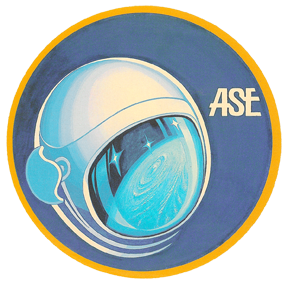Association of Space Explorers |
ASE Committee on Space Traffic Management & Orbital Debris
View a recording of the ASE Space Traffic Management / Orbital Debris report at the XXXV ASE Planetary Congress
When Sputnik was launched in 1957 there was only one man made object in orbit. Now there are over 500,000 spacecraft and space debris objects orbiting the earth. Because these objects travel at speeds on the order of 8 kilometers per second, even a very small piece of material represents a hazard to other spacecraft should a collision (conjunction) occur. Great effort is underway to better understand the orbits of all of these objects and to develop the capability to identify potential collisions. ASE fully supports activities aimed at making operations in earth orbit safe, efficient, and collegial, and is often asked for “the astronaut’s/cosmonaut’s perspective” on subjects that fall under these headings. Space Traffic Management and Orbital Debris are two such topics where ASE sees the need for a coordinated, international effort to insure safe and efficient operations in earth orbit.
In 2017, the ASE membership agreed that Space Traffic Management and Orbital Debris are issues of concern needing to be addressed to ensure safe and coordinated operations in earth orbit and ASE formed a Committee on Space Traffic Management and Orbital Debris, chartered to participate in developing a path forward for international coordination to ensure safe spaceflight through space traffic management and orbital debris mitigation. At the XXXI Congress in Belarus, the ASE unanimously approved a General Statement urging the international spacefaring nations to rapidly develop policies, technologies, protocols and/or treaties on Space Traffic Management (STM) in Low Earth Orbit (LEO) that would assess impact risk from space debris objects: Read the Statement: English | Russian
“The ASE urges the international spacefaring nations to rapidly develop policies, technologies, protocols and/or treaties on Space Traffic Management (STM) in Low Earth Orbit (LEO) that would assess impact risk from space debris objects. Development of a US Space Traffic Management (STM) structure is a first step, but the US is only one element of a growing international launch market. Space debris objects know no international boundaries, travelling around the planet in about 90 minutes each orbit (~17,500 mph or ~28,164 km/h). Similar to the history of aviation and maritime operations, the international space sector should collaborate in order to keep the doors of space open and safe for everyone.”
ASE XXXI Congress Statement September 2018 “ASE General Statement on Space Traffic Management and | UN Committee in the Peaceful Uses of Outer Space Approved June 2019 “Guidelines for the Long-Term Sustainability of Outer Space Activities” |
ASE Letter to UN Office of Outer Space Affairs |
STM/OD Committee NOTAMS
October 7, 2022
Paris Peace Forum
The Paris Peace Forum is an international, non-profit organization based in Paris promotes a variety of initiatives aimed at bringing attention to world issues needing resolution. One initiative, “Net Zero Space” calls for the reduction and elimination of space debris. ASE has signed a pledge in support of their effort and has also been invited to attend a two day working group Nov. 11-12 in Paris to discuss the initiative.
The Washington Compact
"In our world, everything is interconnected. Development without peace is impossible. Peace without justice is untenable. And justice without development is of no use to anyone." - His Majesty King Willem-Alexander
The Hague Institute for Global Justice is another international, non-profit seeking to promote the resolution of issues of international importance. One of their initiatives this year is “Norms of Behavior for Commercial Space Operations”. Where the Paris Peace Forum is targeting the elimination of orbital debris, The Washington Compact is pursuing a Code of Conduct for all commercial space operators. ASE has signed a pledge in support of their effort.
The Orbits Act of 2022
This is a bill introduced (not passed) in the US Congress to support the development of technologies capable of removing/eliminating space debris.
AIAA Satellite Orbital Safety Best Practices
Below are links to a number of documents that show progress being made in addressing Space Traffic Management and Orbital Debris issues. In most of these, ASE members were directly involved in developing the recommendations and writing the documents. The ASE has consistently recommended a holistic approach to STM&OD that would include a comprehensive and structured program including:
– Collision Avoidance and Data Sharing
– Debris Mitigation
– Behavior Guidelines (Code of Conduct)
– Oversight Organization or Body
– Communications Strategy
AIAA Position Paper “Space Traffic Management (STM): Balancing Safety, Innovation, and Growth” ASE XXXI Congress Statement September 2018 “ASE General Statement on Space Traffic Management and Space Debris Objects” | FCC Notice of Proposed Rulemaking UN Committee in the Peaceful Uses of Outer Space Approved June 2019 “Guidelines for the Long-Term Sustainability of Outer Space Activities” | ASE STM/OD Committee Members
|
